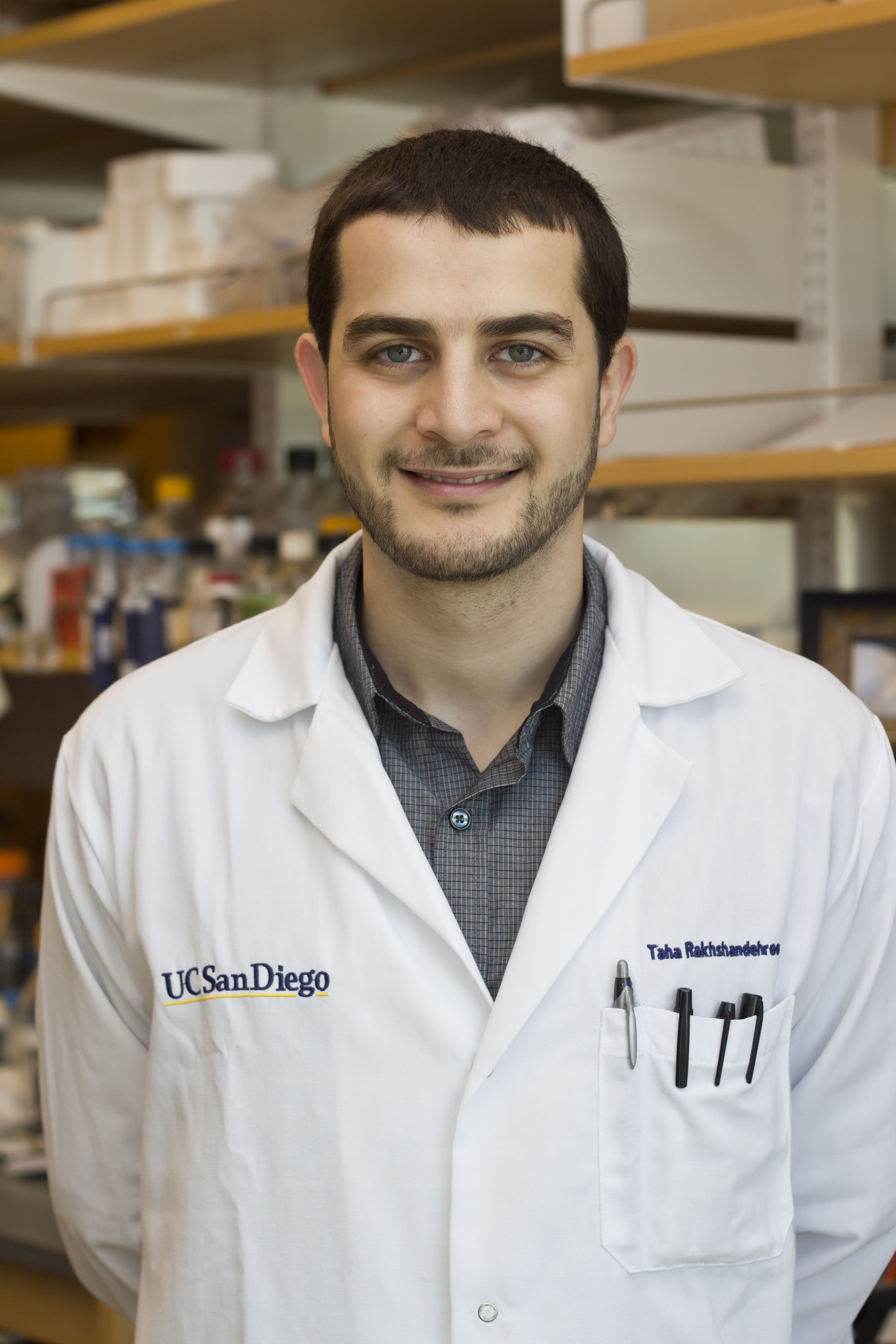αvβ3-Dependent secreted factors promote reprogramming and stemness
Taha Rakhshandehroo
Appointment Period: 2015-2018, Grant Year [29, 30, 31]

Background and Hypothesis: Recently, our lab has identified a pathway that converts cancer cells from multiple organ sites toward a cancer stem cell fate. Specifically, exposing cancer cell lines both in vivo and in vitro to sub-lethal doses of Erlotinib, an EGFR small molecule inhibitor, over the course of weeks expands a subpopulation that is resistant to Erlotinib and highly expresses integrin αvβ3. A major question that remains is how these cancer stem cell (CSC) populations arise. There is some evidence that cancer stem-like cells can emerge in response to paracrine factors released from other cancer stem cells. Because CSCs are a small subpopulation, yet their secreted factors can greatly effect tumor progression, it is important to understand how such paracrine factors are able to push epithelial cancer cells toward a CSC-like state. Our lab has recently identified integrin αvβ3 as a marker/driver of anchorage-independent growth, stemness, and drug-resistance; we hypothesize that αvβ3-expressing cells secrete factors capable of reprogramming tumors toward a CSC-like phenotype.
Current Data: First, I observed that conditioned media collected from αvβ3(+) cells promotes anchorage-independent growth, unlike conditioned media from αvβ3(-) cells. I also observed that conditioned media from αvβ3(+) cells increased the expression of OCT4 and NANOG, two genes involved in maintaining pluripotency of stem cells. Using ultracentrifugation, 3kDa filtration, boiling, and activated charcoal stripping, I have established that one of the critical secreted factors is likely a bioactive lipid molecule. Through an extensive literature review, I focused on three different classes of lipid signaling molecules based on their relevancy to cancer: Ceramides, Lysophosphatidic Acid, and Eicosanoids. I found that αvβ3 expressing cells highly upregulate PLA2, an enzyme that synthesizes LPA and Arachidonic Acid. LPA is a major lipid signaling molecule of interest that I will further characterize. Because Arachidonic Acid is a precursor to Eicosanoids, I also investigated enzymes involved in eicosanoid production. I discovered that αvβ3 expressing cells have increased expression of COX1, the enzyme involved in using Arachidonic Acid to synthesize Prostaglandins. I also found that COX inhibitors can decrease the activity of conditioned media from αvβ3(+) cells. Indeed, these findings indicate that LPA and Eicosanoids can play an important role in promoting tumor progression through an αvβ3-dependent mechanism.
Discussion: While tumors are known to contain a heterogeneous population of cancer cells, how these different cells communicate with one another remains poorly understood. Upon acquiring resistance to targeted cancer therapies such as the EGFR inhibitor Erlotinib, we find that a subpopulation of tumor cells gain expression of αvβ3 integrin. We propose that understanding how this αvβ3-positive subpopulation of drug resistant, anchorage-independent, stem-like cells can affect their neighbors may provide new opportunities to suppress this aggressive tumor phenotype. Indeed, my data suggests that cancer cells expressing αvβ3 integrin secrete a bioactive lipid, presumably LPA and/or Eicosanoids, which promotes anchorage-independent growth in soft agar. Ongoing experiments are underway to validate LPA as a candidate and identify which Eicosanoid(s) promote the activity I have observed. As my findings indicate that a small subpopulation of αvβ3-expressing cancer cells can have a force-multiplying effect on the tumor as a whole, my experimental approach should identify effective therapeutic strategies to prevent this small subpopulation from reprogramming their neighboring cancer cells toward a more aggressive phenotype.
PUBLICATIONS (resulting from this training)
Gozo MC, Wettersten HI, Seguin L, Yebra M, Rakhshandehroo T, Weis SM, Cheresh DA. Targeting stress-induced reprogramming abrogates therapy-induced tumor progression. (2018) Nat Communic. In review.
Rakhshandehroo T, Tan J, Wettersten H, Cheresh D. Lysophosphatidic Acid Receptor 4, a stress inducible gene promotes pancreatic cancer stress tolerance, drug resistance and metastasis. In preparation.